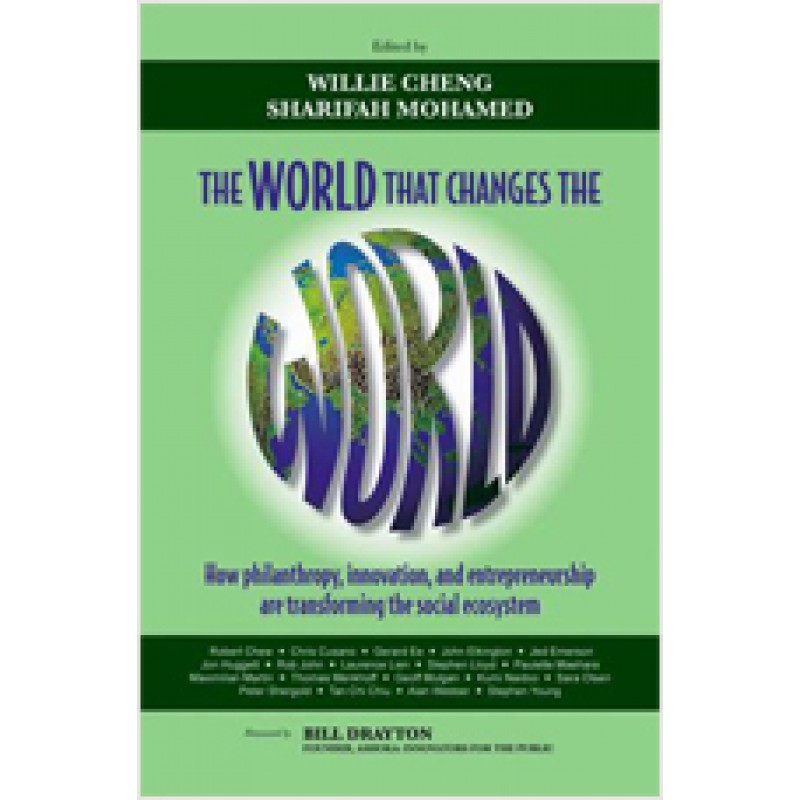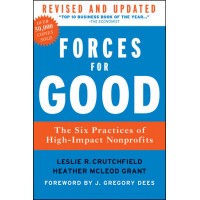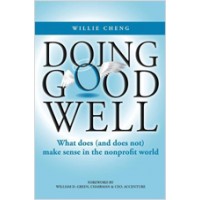The World that Changes the World: How Philanthropy, Innovation, and Entrepreneurship are Transforming the Social Ecosystem, Sep/2010
| Author(s) | Willie Cheng (Co-Editor), Sharifah Mohamed (Co-Editor) |
| ISBN10 | 0470827157 |
| ISBN13 | 9780470827154 |
| Format | Hardcover |
| Pages | 408 |
| Year Publish | 2010 September |
Synopsis
The social ecosystem. A pulsating, thriving community of very diverse, at times divisive players, all driven by a common mission: to change the world for the better.
It is a potent force on the planet. And it is growing.
It is organized around several million civil society groups with a presence in every country in the world. More than 20,000 of these groups operate across borders. It is equivalent in size to the world’s fifth-largest country, spending more than US$1.9 trillion a year, and providing more than 4.8 million full-time equivalent jobs.
To accomplish its mission, the social ecosystem employs a myriad of tools and approaches. Each player has its own, defined, but continually evolving, role toplay. There are those who need help (beneficiaries), those who help (social purpose organizations), and those who help those helping (the capacity builders). These core players depend upon the wider community, the media,and the government for support. Indeed, they can be so effective that half of the populations in some countries are mobilized to their cause.
There are, of course, problems and difficulties. For as much as the social ecosystem is about change, it is also beset by the forces of change. Enter the neophilanthropists who seek to introduce market and business practices, some of which appear to be at odds with the values of the social world. And from within the sector, new heroes—the social entrepreneurs—are emerging to create social change on an unprecedented scale in new pattern-changing ways. Meanwhile, the power of technology and innovation to foment disruptive change is enabling new possibilities and outcomes. The demands of accountability placed by civil society players on corporations and governments are rebounding on them. All these factors, and more, are transformingthe social ecosystem even as it seeks to transform the larger world.
The World that Changes the World sets out, for the first time, a holistic, complete, and detailed view of the fascinating social ecosystem: what it is, what it could be, and where it could be going.
The book brings together twenty one international authors who share their perspectives and insights on various facets of the social ecosystem, the change drivers and the macro-trends. Well known thought leaders, captains of the industry and experts in their fields among them, Alan Webber, Geoff Mulgan, John Elkington, Stephen Young and Kumi Naidoo - they are all heavyweights in the social space who can best describe the present and future of the social ecosystem.
About The Authors:
This unique book brings together 21 international authors—thought leaders, captains of industry, and experts in their fields—to share their perspectives
on, and insights into, the various facets of the social ecosystem, its change drivers, and its macro-trends.
Editors & Authors
Willie Cheng (Lien Centre for Social Innovation)
Sharifah Mohamed (Lien Centre for Social Innovation)
Authors
Robert Chew (Information Technology Standards Committee)
Chris Cusano (Ashoka: Innovators for the Public)
Gerard Ee (Council for Third Age)
John Elkington (Volans Ventures)
Jed Emerson (Blended Value Group)
Jon Huggett (Oxford University)
Rob John (Asia Venture Philanthropy Network)
Laurence Lien (National Volunteer & Philanthropy Centre)
Stephen Lloyd (Bates Wells & Braithwaite)
Paulette Maehara (Association of Fundraising Professionals)
Maximilian Martin (IJ Partners)
Thomas Menkhoff (Singapore Management University)
Geoff Mulgan (The Young Foundation)
Kumi Naidoo (Greenpeace International)
Sara Olsen (SVT Group)
Peter Shergold (Centre for Social Impact)
Tan Chi Chiu (Gastroenterology & Medicine International)
Alan Webber (Fast Company)
Stephen Young (Caux Round Table)





